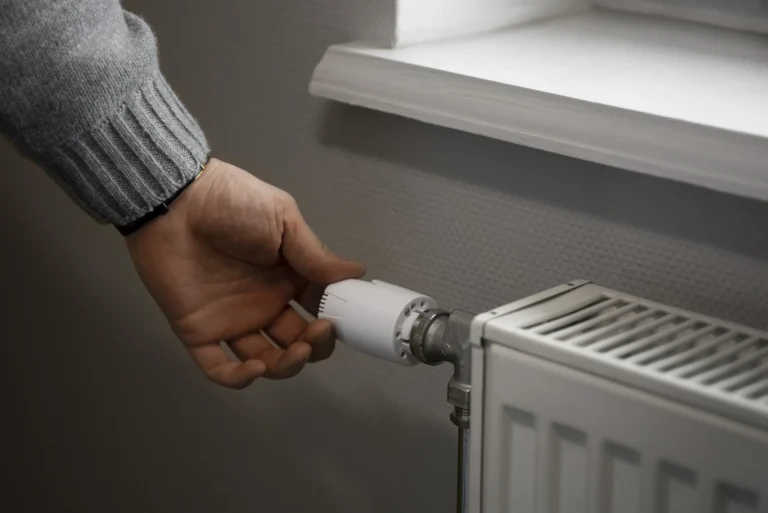Know What You’re Paying For When It Comes to Boiler Service Costs.
I have to be honest with you here. Boilers aren’t the most thrilling topic for anyone. But when your boiler starts making strange noises or won’t start on a cold morning, it will be the only thing on your mind. If you’ve ever caught yourself wondering how much a boiler service costs or whether you’re paying more than you should, you’re in good hands.
This guide gives you the real figures, explains why servicing matters, and helps you avoid overspending. We’ll also talk about what a boiler condensate pipe does, surprise charges you should watch out for, and how maintenance ties in with the ECO4 government scheme.
Has your boiler had its yearly check? Don’t put it off. Check your eligibility for a free upgrade with Heatcore now.
Why Service a Boiler That Seems Fine?
Think of your boiler like your car; just because it’s running doesn’t mean everything’s okay under the hood. A service is about catching the little things before they become big, expensive ones. What servicing tips can help you?
- Spot early signs of wear
- Maintain fuel efficiency
- Prevent sudden breakdowns
- Keep your warranty intact
So while the cost of boiler maintenance might feel like an extra bill, it’s often cheaper than emergency repairs or full replacements.
How Much Is a Boiler Service in 2025?
Right now in the UK, a standard boiler service costs between £70 and £120. The exact price depends on a few things:
- Where do you live
- What type of boiler do you have (combi, system, or conventional)
- If you’re booking a one-off service or part of a care plan
- If it’s a standard booking or an emergency visit
Typical Boiler Service Price Breakdown:
- Annual basic service: £70–£90
- Full service with performance and safety checks: £90–£120
- Emergency or weekend call-out: £120–£150+
Typical Boiler Service Price Breakdown:
| Boiler Type | Model Examples | One-Off Service Cost | Service Plan (Yearly) |
| Combi Boiler | Worcester Bosch Greenstar, Ideal Logic+ | £70–£90 | £100–£160 |
| System Boiler | Vaillant ecoTEC Plus, Baxi Megaflo | £80–£110 | £120–£180 |
| Conventional Boiler | Glow-worm Energy Regular, Ideal Mexico | £90–£120 | £130–£200 |
| Biomass Boiler | ETA, Windhager | £150–£250 | Varies by provider |
| Oil Boiler | Grant Vortex, Worcester Bosch Heatslave | £100–£140 | £160–£220 |
Is your boiler due for a checkup? Speak to Heatcore to find out if a replacement might save you more in the long run.
What Happens During a Boiler Service?
When a Gas Safe registered engineer like those at Heatcore turns up, they’re doing more than just giving your boiler a quick look. I’m going to break down what it would look like:
- Check for any sort of leaks or corrosion
- Test all key components and safety systems
- Clean internal parts
- Measure gas pressure and flow
- Confirm the flue is safely removing fumes
- Assess your condensate pipe for blockages or freezing risk
Note: They’ll give you a service report at the end. This paperwork is worth keeping as it proves you’ve had the work done and can support any warranty claims later.
What’s a Condensate Pipe?
Okay, to explain why you need to get your boiler condensate pipe serviced, first, you need to understand what it is and how it works. A condensate pipe is a small plastic pipe that carries away the waste water your boiler creates when it’s running. Modern boilers are obviously more energy-efficient because they extract extra heat from the gases they produce. This process creates water vapour, which then cools and turns into liquid called condensate. That liquid needs somewhere to go, and that’s what the condensate pipe is for.
It usually runs from your boiler to an outside drain. If that gets blocked, it is often because it’s frozen in winter. Now, your boiler might shut down as a safety precaution. And that is why engineers always check it during a service, making sure it’s clear and properly insulated.
Why Your Boiler’s Condensate Pipe Matters
A boiler condensate pipe is a small pipe that safely drains water that is created during the heating process. When this pipe gets blocked, your boiler can shut down completely.
During a service, the engineer will check that the pipe is clear and insulated (especially important in winter). If there’s damage or buildup, fixing it could add to your costs, but it’s better than a breakdown during a cold snap.
Can Government Support Reduce Costs?
Yes, most definitely. If your household qualifies for the ECO4 scheme, you might not have to pay anything at all. ECO4 helps eligible homes replace inefficient boilers and heating systems without the usual upfront costs.
Whether you qualify depends on things like income level, benefits you receive, and your home’s EPC rating. The government site has full details here: Boiler Upgrade Scheme Statistics
Internal Link: Check out how EPC ratings affect ECO4 eligibility. Add EPC blog link here
What Is the Boiler Upgrade Scheme and How Does It Work?
The Boiler Upgrade Scheme is a government-backed initiative to help homeowners in England switch from old, fossil fuel-based heating systems to more energy-efficient, low-carbon options. If you’re upgrading to a heat pump or biomass boiler, you could get a grant of up to £7,500 to cover the cost. To apply, you’ll need to work with a certified installer, and they’ll handle the paperwork and apply for the grant on your behalf. It’s designed to make greener heating affordable, especially if you’re looking to cut down energy bills and future-proof your home.
When Should I Book a Service?
Try to get your boiler checked in late summer or early autumn. That way, you avoid the rush when everyone else realises their heating doesn’t work in November.
And has it been over a year since your last service? Book one ASAP. Don’t wait until you’re stuck without heating.
Need help now? Apply with Heatcore to see if your boiler qualifies for a full government-funded upgrade.
Conclusion: Is the Boiler Service Cost Worth It?
So the question is, is the boiler service cost even worth it?
Yes, the boiler service cost might feel like one more thing to budget for, but it’s a smart investment. It can prevent surprise breakdowns, lower heating bills, and even unlock access to government support.




